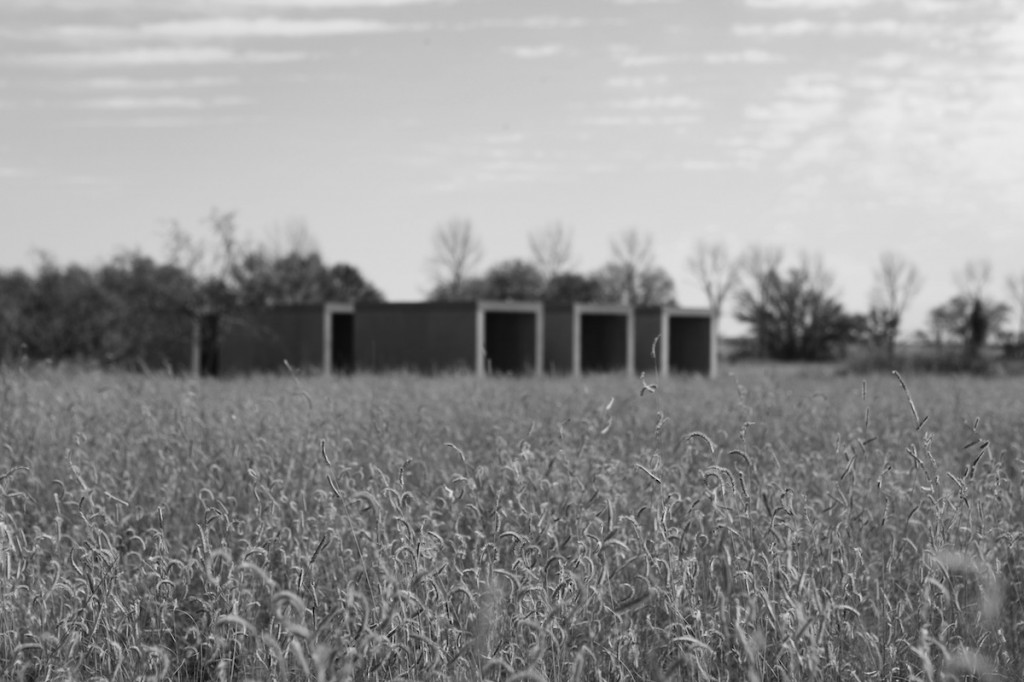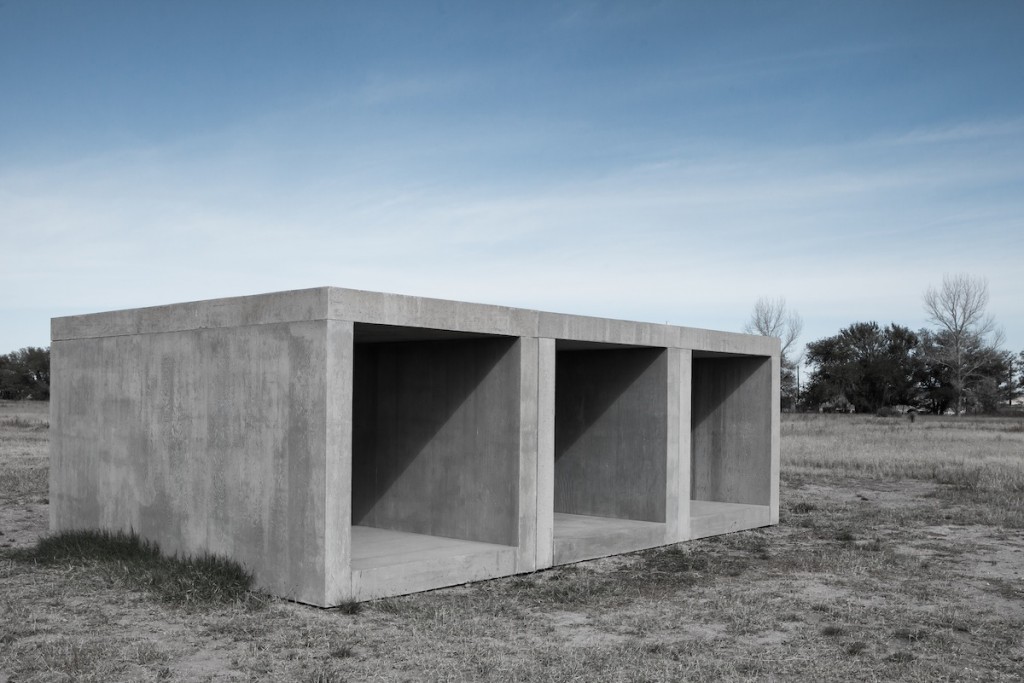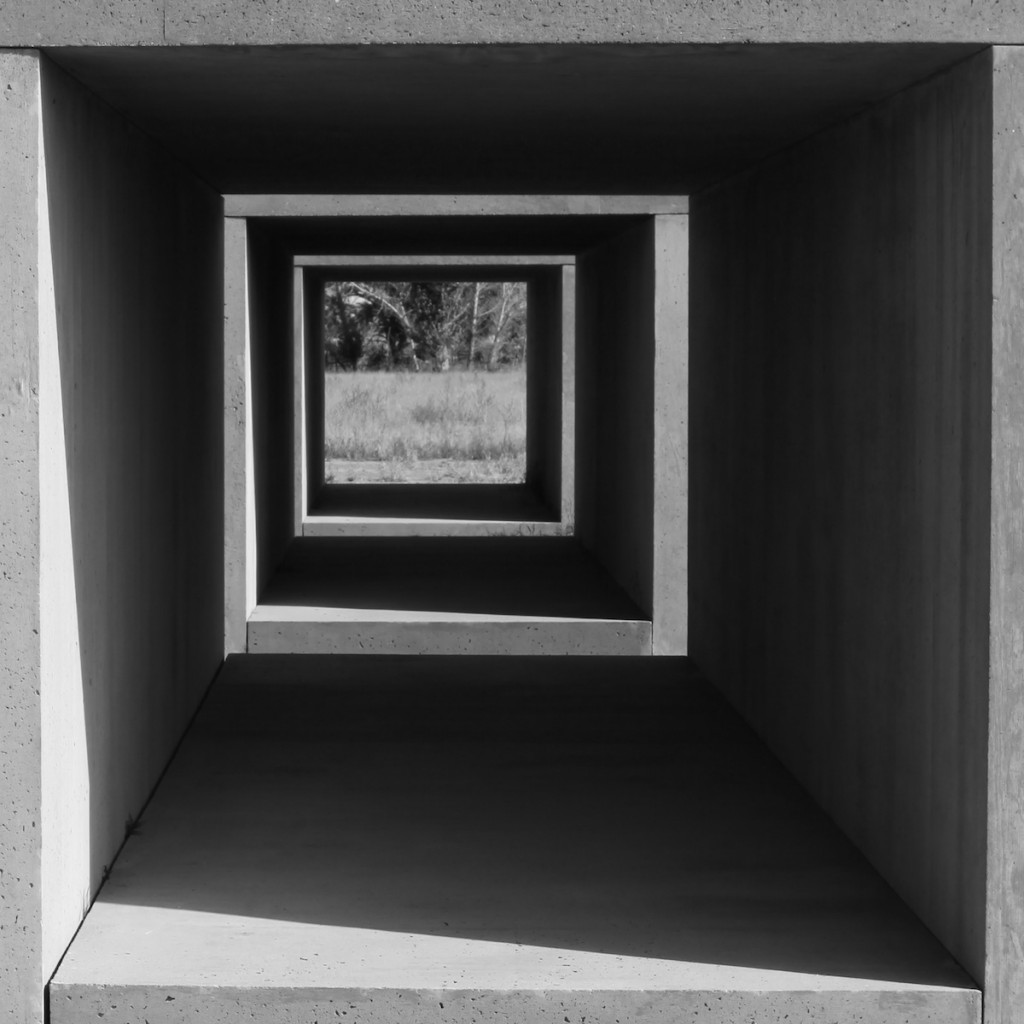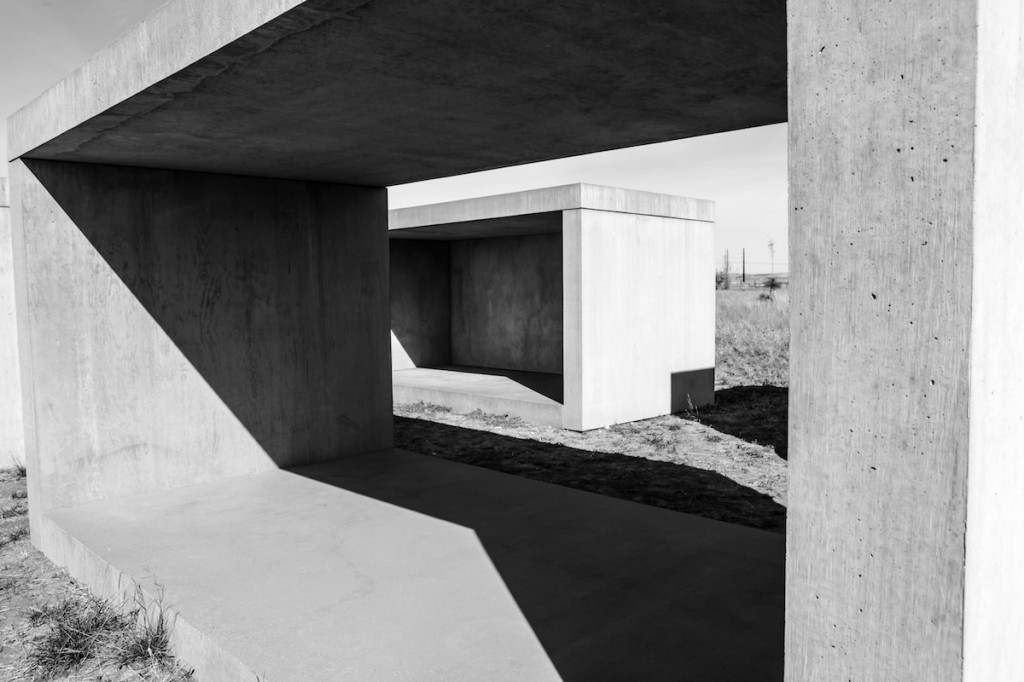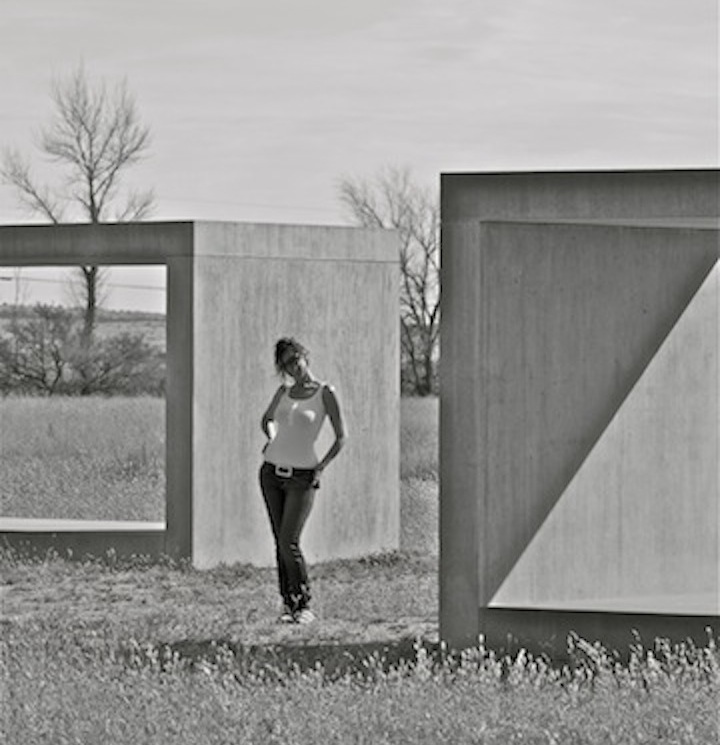Donald Judd’s Marfa
Marfa is the West Texas town where minimalist artist Donald Judd found refuge in the early 1970s. He was fleeing the New York art scene and accidentally, or purposefully, fell in love with silence, unlimited space and the prospect of doing something with several empty residential and commercial buildings, which he purchased with help from the Dia Art Foundation.
Judd saw Marfa as an opportunity to fulfill his aesthetic beliefs about the display and preservation of his work. Everything is Minimalistic. The buildings are stripped of embellishment, exposing raw structural details. Along with permission to manage the presentation of his work, the town of Marfa allowed Judd an abundance of exhibition space and in effect enabled him to play the role of both artist and curator.
On our trip into the wild of Texas we visited the Judd Chinati Foundation, plunked down in the fields of tall yellow grass, surrounded with gently slopping mountains, everything touching an incredible big blue sky. You walk for nearly a kilometer through an art installation of large concrete boxes.
It’s not an entirely pleasant walk, the grass blades are sharp, the air is full of bugs and there’s always the fear of rattle snakes. I felt like some sort of art pilgrim enduring the local travails to reach this very unusual synapse of art and nature.
All of a sudden the cement bricks made so much sense to me: The shadows, the placement, the balance.
I remember the first time visiting the Louvre and stopping in front of Nike, that most beautiful winged goddess. This was an oddly similar sensation. I can’t possibly explain it, only to say that it is abstract in the truest sense, and what you come away with is wonderment at the way he found a way to balance the material and the immaterial; and so these ordinary objects are set on a three dimensional canvass of weather and geography, and then enlivened and tuned, by time, sound and light.
Judd’s friend, Rudi Fuchs, described the artist’s vision in Marfa, and in life, this way: “In Judd’s scale of values … beauty and perfection are ultimately matters of dignity, not only of the artwork but of nature and culture in general. Beauty is a very special and noble state. Yet Judd fervently believed that such an idealistic notion of beauty … is, in the end, much too limited. Like the right to liberty and the pursuit of happiness, people have a right to things beautiful.”


